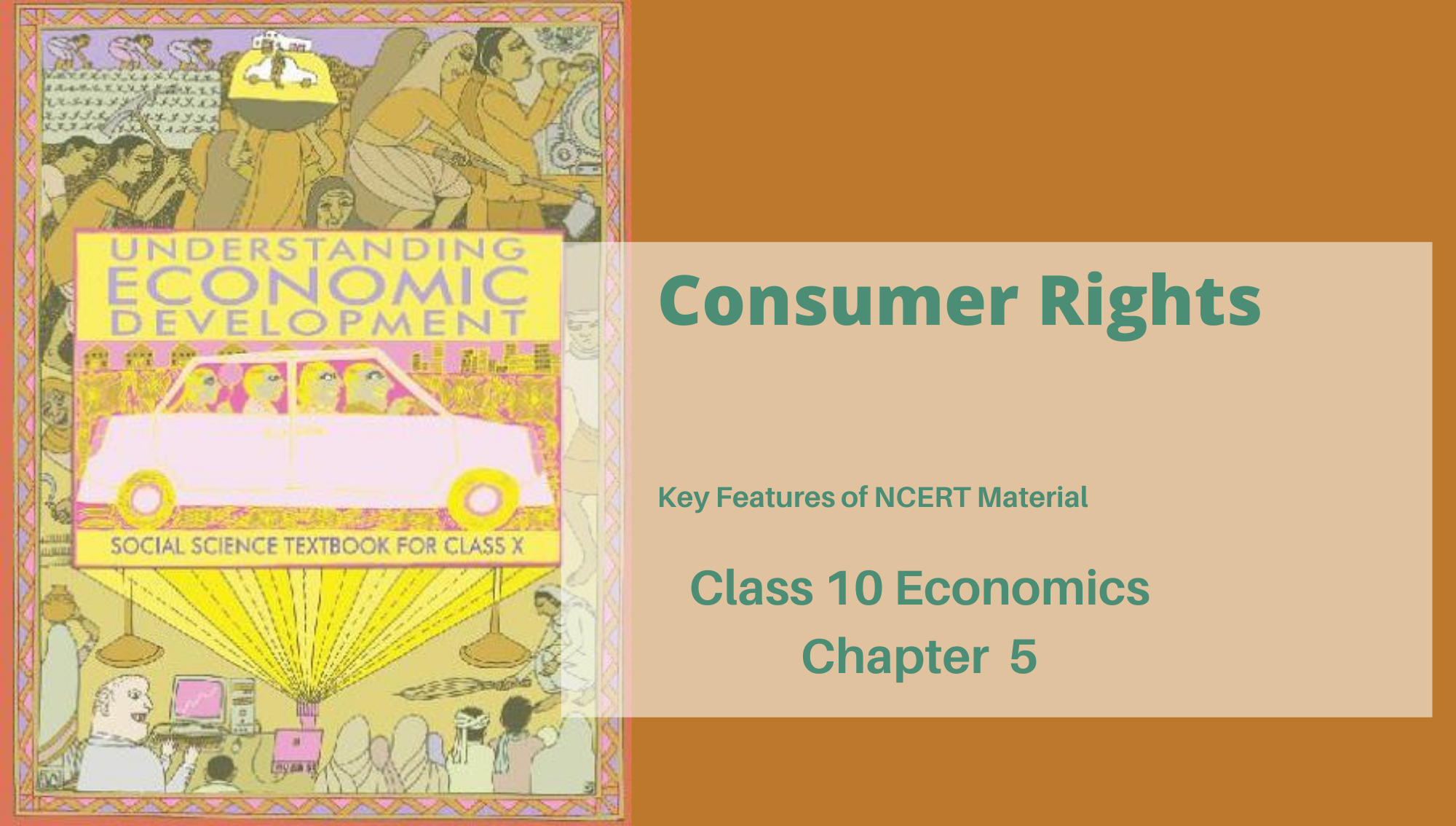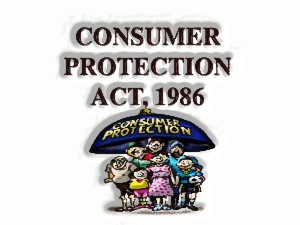Consumer Rights: Class 10 Economics NCERT Chapter 5

Key Features of NCERT Material for Class 10 Economics Chapter 5 – Consumer Rights
In the last chapter 4: Globalisation And The Indian Economy, you learned about Globalization and the Indian Economy, we have fundamentally managed the Integration of production and combination of markets. This will assist you with understanding the process of globalization and its impact in a superior manner.

(Consumer Rights: Class 10)
In this chapter: Consumer Rights, you will learn about that in India, the consumer movement in the name of ‘social power’ began with the necessity of securing and advancing the interests of consumers against deceptive and unreasonable exchange practices. Because of every one of these efforts, significant activity was taken in 1986 by the Indian government. It has actualized the Consumer Protection Act 1986, prevalently known as COPRA.
Fast revision notes
The Consumer in the Marketplace:
Rules and regulations need to be followed for the protection of the consumers in the commercial center.
Misuse in the commercial center happens frequently.
Markets don’t work in a reasonable way when producers are not many and ground-breaking, whereas consumers purchase in small amounts and are scattered. This happens especially when huge companies are creating these goods. These companies with colossal riches, influence, and reach can control the market. Now and again, false data is passed on through the media, and different mediums of communication in order to convince and attract the consumers.
Consumer Movement:
In India, the consumer movement in the name of ‘social power’ began with the necessity of ensuring and advancing the interests of consumers against unscrupulous and unreasonable exchange practices.
Uncontrolled food shortages, storing, dark promoting, debasement of food, and edible oil brought forth the consumer movement in a composed structure during the 1960s.
Till the 1970s, consumer organizations were, to a great extent, occupied with composing articles and holding exhibitions. They framed consumer groups to investigate the malpractices in proportion shops and congestion in the street passenger transport.
All the more as of late, India witnessed an upsurge in the number of consumer groups.
Rights of Consumers :
Rights which are given by law: –

Right to safety: Consumers reserve the privilege to be secured against the promotion of goods and conveyance of services that are hazardous to life and property. Producers need to observe the necessary safety rules and regulations strictly. There are numerous goods and services that we purchase that require special consideration regarding safety.
Right to be educated: Consumers reserve the privilege to be educated about the particulars of goods and services that they purchase. Consumers would then be able to grumble and ask for compensation or substitution if the item proves to be blemished in any way. Similarly, one can protest and whine on the off chance that someone sells a decent at more than the parcel’s printed cost. This is shown by ‘MRP’ — the most extreme retail cost.
The right to choose Any consumer who receives a service in whatever limit, regardless of old enough sex and nature of service, has the right to decide whether to keep on accepting the use.
Right to be heard: Consumers reserve the option to be heard in case of a complaint.
Right to seek redressal: Consumers reserve the option to seek redressal against uncalled for exchange practices and abuse. If any sort of harm is done to a consumer, the person has the right to get compensation, relying upon the level of harm.
Right to represent in consumer courts: This consumer movement in India has prompted the arrangement of various organizations privately known as consumer forums or consumer protection councils. They manage consumers on the most proficient method to document cases in the consumer court. On numerous occasions, they also represent singular consumers in consumer courts. These willful organizations also get money related support from the administration for making awareness among individuals.
Factors causing abuse of Consumers :
- Restricted data
- Restricted supplies
- Restricted rivalry
- Low proficiency
Duties of Consumers :
Purchase quality checked products such as ISI, AGMARK, and so on.
Ask for cash updates for the items purchased at whatever point possible.
Whine for genuine grievances, consumers must know their rights and must exercise them.
Demerits of Consumer Redressal Process :
The Consumer Redressal Process is getting cumbersome, expensive, and tedious.
Numerous periods, consumers are required to draw in lawyers. These cases require time for filling and going to the court proceedings and so forth.
Cash memos are not issued in most cases; consequently, the proof is not present.
Most of the purchases in the market are small retail sales.
The implementation of laws that secure workers, especially in the disorderly sectors, is powerless.
Rules and regulations for the working of markets are regularly not followed.
Consumer Protection Act – 1986 (COPRA)
To ensure and advance the interest of consumers.
Under COPRA, three-level quasi-judicial hardware at the district, state, and national levels is set up for redressal of consumer disputes.

The district-level court deals with the cases, including claims upto Rs. Twenty lakhs; The courts on the state level betwixt Rs. 20 lakhs and Rs. 1 crore and the national level court deals with cases including claims The Consumer in the MarketPlace
Both as producers and consumers, we partake in the market.
As producers of services and goods, we could be working in any sectors such as horticulture, industry, or services.
Consumers partake in the market when they purchase goods and services that they need. These are the last goods that individuals use.
The rules and regulations are needed for the protection of the consumers in the commercial center.
Consumer Movement
Surpassing Rs. 1 crore.
If a case gets dismissed in district level court, the consumer can also claim in state and afterward in national-level courts. Thus, the Act has empowered us as consumers to reserve the privilege to represent in the consumer courts.
India has been celebrating National Consumers’ Day on 24 december. This was the day when the Indian Parliament enacted the Consumer Protection Act in 1986. India is one of the countries that have exclusive courts for consumer redressal.
There are today more than 700 consumer groups in the nation of which just around 20-25 are efficient and perceived for their work.
(Consumer Rights: Class 10)

